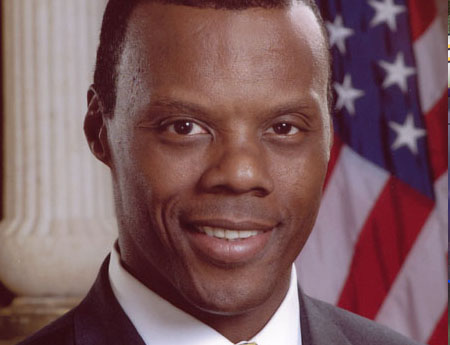Black News Net Seeks FCC Route to Carriage

The smarter way to stay on top of broadcasting and cable industry. Sign up below
You are now subscribed
Your newsletter sign-up was successful
Evoking the challenges of a consolidated market and pitching the public interest value of diverse programming, the Black Television News Channel (BTNC) is trying a new approach to securing multichannel video programming distributor carriage, and the network has the FCC’s attention.
The commission is soliciting comment on an effort by J.C. Watts, the former Oklahoma congressman, to launch BTNC on Dish and DirecTV.
BTNC, which has been trying to launch for most of a decade, has asked the FCC for a temporary three-year waiver of the commission’s requirement that programmers using DBS “noncommercial educational” channel set-asides be commercial-free. BTNC promises to have limited commercials—in their words, about half the normal load.
BTNC says that given the decline in African-American-owned broadcast media— currently, there are only a handful of stations— it is in the public’s interest to help BTNC “correct the imbalance.”
The channel, which will be operated in conjunction with the journalism school of historically black Florida A&M University, promises to operate as a noncommercial entity for the duration of the “market entry period,” putting the ad dollars back into the “informational needs of the community.”
BTNC spelled out the conditions it would agree to accept in exchange for getting the leg up on carriage and in an effort to “concretely and meaningfully address the lack of diverse news, informational and educational programming identified by the Commission.”
Those include: producing 14 hours per day of news and information, operating as a nonprofit for those three years, creating 80 new jobs and at least 40 internships, providing journalism training—essentially a given since it is teaming with a journalism school—and promoting on-air training.
The smarter way to stay on top of broadcasting and cable industry. Sign up below
“The ban on advertising is not statutory; instead, it reflects the Commission’s own gloss on the statute,” BTNC said in petitioning the FCC for the waiver, “and the Commission may waive or modify its prior interpretations. This relief will help correct the shameful level of minority media ownership that exists today and further the diversity and competition goals of the Communications Act as well as other public interest goals.”
“We believe there is abundant good cause and that BTNC’s programming is exactly what Congress had in mind when it created the public interest set-aside,” Bob Brillante, comanager of BTNC, told B&C last week. “Absent this waiver, BTNC will not be able to generate sufficient revenue to offset its newsgathering and production cost.”
Both Dish and DirecTV have committed to carrying the channel if it can get the waiver, BTNC officials said. Dish has committed to three-year carriage at the outset. Giving space to an African-American-targeted net could be a boon to DirecTV, given AT&T’s current bid for the company. Diversity conditions are frequently offered to help seal a deal in D.C.
The FCC has opened a docket on the request, setting a June 16 deadline for comments and a reply comment deadline of July 1.
WHEELER SLAMS JOINT SALES AGREEMENTS
Broadcasters must start unwinding joint sales agreements newly in violation of FCC local ownership caps beginning June 19, though they can seek a waiver. This came after the Federal Register last week published the FCC’s March decision to make JSAs of over 15% of a station’s ad inventory attributable as ownership interest.
Broadcasters also now know just what FCC chairman Tom Wheeler thinks of the JSAs he targeted in March. At a House Communications Subcommittee hearing last week, Wheeler said JSAs had become a K Street cottage industry of lawyers finding creative ways to get around FCC rules and “pervert” ownership.
Rep. Adam Kinzinger (R-Ill.) added his voice to those suggesting JSAs were beneficial. He said a Fox affiliate in Rockford, Ill., that had aired a Hispanic newscast would no longer be able to do so and suggested Wheeler had tightened the rules without sufficient analysis. He asked whether there would be clear waiver standards: The item included a path for JSAs in the public interest to be exempt from counting as ownership interest.
Wheeler said the process would be expedited and was meant to address cases like the Rockford station.
Contributing editor John Eggerton has been an editor and/or writer on media regulation, legislation and policy for over four decades, including covering the FCC, FTC, Congress, the major media trade associations, and the federal courts. In addition to Multichannel News and Broadcasting + Cable, his work has appeared in Radio World, TV Technology, TV Fax, This Week in Consumer Electronics, Variety and the Encyclopedia Britannica.

